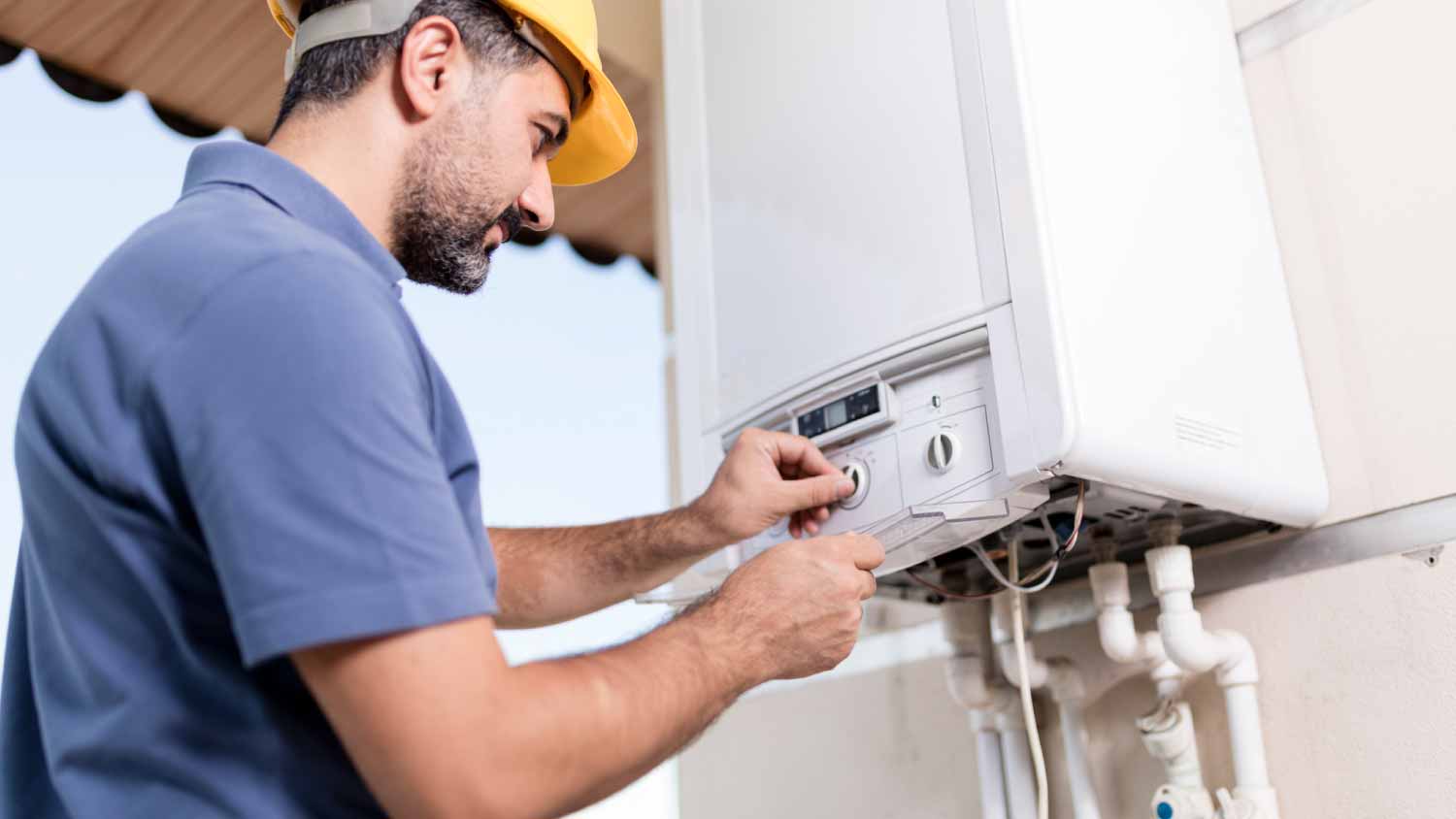Why Does My Hot Water Run Out Quickly?
Nobody likes cold showers, so if your hot water runs out quickly, find out why and how to fix it


Taking your morning shower only to be surprised by a burst of cold water is never a good way to wake up. And if you're running out of hot water regularly without increasing your consumption, you may be left scratching your head.
Hot water can run out quickly thanks to things like an old or poorly maintained water heater, sediment or corrosion buildup, a broken thermostat, and weathered heating element. You could also need a bigger water heater for your household.
Thankfully, no matter the problem, we've got some top tips to help make sure you never run out of hot water.
Tip #1: Switch to a Tankless Hot Water System
If your water heater runs out of hot water quickly because it's old, the heating element has gone, or the tank just isn’t big enough to meet the demands of your household, it's probably time to think about getting a new one. And, instead of just opting to replace your existing tank, you may want to consider getting a tankless hot water system.
There are many benefits of tankless systems, and one of the most significant is that, unless you're putting too much stress on it by running all the taps and appliances at once, you'll never run out of hot water.
That's because there's no tank with a finite supply of hot water that can quickly be used up. Instead, cold water is heated on demand by a heat exchanger when the system detects water moving through the hot water pipes. A tankless hot water system costs between $1,165 and $3,140, including installation which could be a good investment to make your morning routine more comfortable.
Tip #2: Be Conservative With Water Usage
We should all be aware of our water usage anyway, but it's even more important if your hot water isn’t working. Save energy and water with some of these simple actions, as they will lessen the burden on your hot water system.
Only do full loads of laundry
Run the dishwasher only when it's full
Install a low-flow showerhead to save up to 2,000 gallons of water per year and put less demand on your hot water system
Take shorter showers. If you reduce your shower time by three minutes, you'll save 2,700 gallons of water per person, per year
Tip #3: Be Smart With Appliances
If your dishwasher and washing machine have eco modes, use them, as they reduce temperature and water usage, placing less demand on your hot water system. To further reduce the burden, make sure you run the appliances at different times so you don't drain all the hot water at once.
Tip #4: Do Laundry in Cool Water
Unless laundry is particularly stained, you can wash in cool temperatures and, with a good detergent, still get beautifully clean clothes. As an added bonus, washing at cooler temperatures helps to keep colors bright and increases the lifespan of the garments.
Tip #5: Upgrade the Size of Your Water Tank

If your family has grown or you've moved into a new property, the water tank simply may not be big enough to meet your needs. In that case, if you don't want to get a tankless system, it's time to upgrade to a larger, more efficient water tank. A new hot water tank costs between $795 and $2,800, including installation.
Tip #6: Check to See If You Have Sediment Buildup
Over time, sediment from minerals and corrosion builds up in your tank, making it less efficient and reducing the available space for storing water. This is an easy fix and just requires a local plumbing pro to drain, flush, and clean the hot water tank.
Tip #7: Get a Plumber to Check Heating Element
If your hot water runs out fast because it doesn't ever quite reach the right temperature or takes a very long time to heat, your heating element could be heavily scaled or at the end of its life. The best way to know for sure is to get a plumber to inspect the element and, if necessary, fit a new one.
Tip #8: Insulate Pipes
Insulating pipes with the right materials, particularly if you live in cold climates, is a smart move, as it prevents heat from escaping from the pipes as the hot water travels to its destination, helping your water stay hotter for longer.
Tip #9: Get the Hot Water Heater Serviced
If you can't troubleshoot the water heating system on your own, you think the water heater is about to fail, or you just want to make sure it's in good shape, call a local water heater specialist for a service. They'll come and inspect and check the whole system to identify any existing problems or hiccups and can advise you what next steps to take. That could mean repairing or even replacing your current water heater.



















